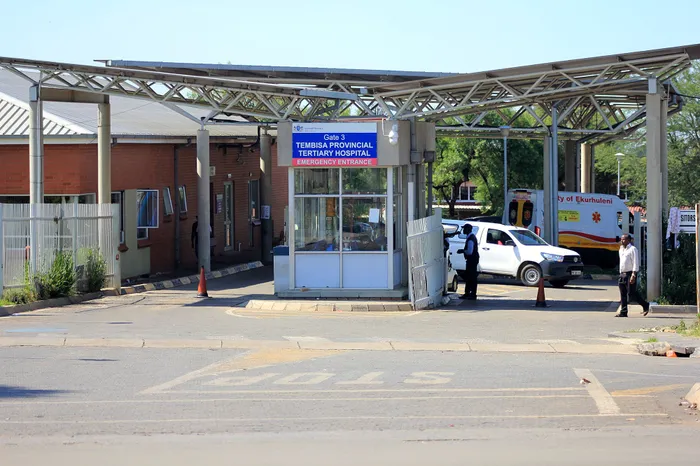
The South African Banking Risk Information Centre (SABRIC), and the Financial Intelligence Centre (FIC) both financial crime fighting bodies, in light of the Special Investigative Unit report into R2 billion being looted by officials and service providers, said banks were required to declare suspicious payments.
Image: Dimpho Maja/African News Agency(ANA)
BANKS and other financial institutions are under renewed pressure to detect and report suspicious transactions, particularly those involving public funds.
This comes in the wake of the Special Investigative Unit (SIU ) report which exposed how officials from the Gauteng Department of Health and a syndicate of dodgy service providers to Tembisa Hospital looted more R2 billion meant for medical supplies.
The report revealed the SIU’s complex investigation of syndicates involving fraud, corruption, money laundering, bid rigging and racketeering between officials and syndicates.
Investigators relied on the Financial Intelligence Centre (FIC) Act to track suspicious payments however they still found it difficult to collect certain electronic payment and data evidence.
The South African Banking Risk Information Centre (SABRIC), and the Financial Intelligence Centre (FIC) both financial crime fighting bodies, said banks were required to declare suspicious payments.
“Banks are obligated in terms of the FIC Act to report any suspicious transactions or activities to the Financial Intelligence Centre (FIC), said Louise van der Merwe, Media Communications Liaison Manager for SABRIC.
“These reports are confidential, and SABRIC does not have sight of them. Following the submission of a report, the FIC is required to perform the necessary analysis to confirm the suspicion and take the necessary steps thereafter,” said van der Merwe.
Advocate Pieter Smit, Acting Director of the Financial Intelligence Centre (FIC) said due to the FIC Act, he was unable to share details on financial transactions between the Gauteng Department of Health and the Tembisa Hospital’s high risk vendors.
However, reports received from banks are reviewed and the financial intelligence gathered are shared with law enforcement, prosecutors, and other authorities to help with investigations, court cases, and asset seizures, said Smit.
“All accountable institutions identified in the FIC Act, including the banking sector, are required to fulfil compliance obligations which involve registration with the FIC and submission of regulatory reports,” he said.
This includes reports about suspicious or unusual transactions, cash deals over R50,000, and anything linked to terrorism - which the SIU focused on in its investigation.
“These requirements and obligations are communicated regularly by the FIC for all accountable institutions, including banks, through dedicated bilateral and industry wide engagements as well as targeted outreach through webinars and physical outreach sessions nationally.
“Among other subjects, engagements focus on suspicious and unusual transaction detection and reporting,” said Smit, adding that it works with other regulators to inspect and ensure banks and financial institutions followed the rules.”
He added that the FIC - led public-private partnership of the South African Anti-Money Laundering Integrated Task Force worked with banks and reinforced how they could better spot suspicious transactions and activities.
“As the accountable institutions are directly involved in transactions with their clients, they are required to identify and report such suspicious and unusual activity and transactions, involving funds (the proceeds of unlawful activities) which they may regard as originating from ill-gotten public funds,” said Smit.
The SIU’s report detailing the professional money laundering network also comes at a time when the decision on whether South Africa will be taken off the grey list.
The country was grey listed by the FInancial Action Task Force (FATF) in 2023 for not complying with international standards around the prevention of money laundering, terrorist and proliferation financing. The FATF is expected to be announced later this month.
Smit said in its mutual evaluation of South Africa, the FATF identified the need for law enforcement and prosecutorial authorities in the country to do complex investigations and prosecutions.
“To effect this, resources needed to be focused on increasing capacity for financial investigations in cases of serious organised crime, commercial crime and corruption,” he said.
Smit said it was unlikely that the SIU’s report would immediately impact and have an effect on FATF’s decision on whether South Africa is to exit the grey list.
“How the competent authorities (supervisors and law enforcement authorities) have effectively addressed such issues through demonstrated management and mitigation measures may be the subject of scrutiny by the assessors in the next FATF mutual evaluation of South Africa, which is anticipated to commence in June or July 2026,” he said.
Related Topics: